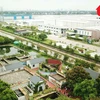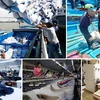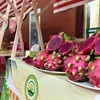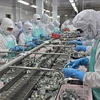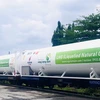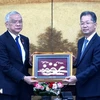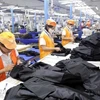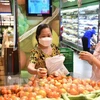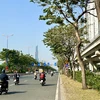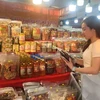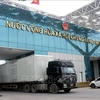The Ministry of Agriculture and Rural Development plans to zone off an additional 257,000 ha of land in the south for growing fruits that are expected to meet food safety standards.
Half of the harvested fruit will be labelled with the Good Agricultural Practices (GAP) standard from now to 2020, according to the Southern Fruit Research Institute (SOFRI).
Local farmers will develop 12 fruit trees: dragon fruit, mango, rambutan, durian, star apple, grapefruit, longan, banana, pineapple, orange, custard-apple and mandarin in the Mekong Delta and the Southeastern regions.
They are striving to earn 150 million VND per ha per year.
Scientific agencies under the ministry were asked to provide growers with modern farming techniques and instruct them to select good varieties to ensure stable and high-yield output for domestic and foreign consumption.
The ministry has also organised a trade promotion programme for exported fruits and implemented the Sanitary and Phytosanitary Agreement (SPS) of the World Trade Organisation (WTO) to secure links with major traditional markets and expand new ones.
Localities in the zoned-off regions have also worked together to improve infrastructure and specify policies to develop fruit production.
The southern region boasts 415,800 ha of land for fruit cultivation, producing around 4.3 million tonnes per year, accounting for 53.2 percent and 57 percent of the country’s area and output, respectively.-VNA
Half of the harvested fruit will be labelled with the Good Agricultural Practices (GAP) standard from now to 2020, according to the Southern Fruit Research Institute (SOFRI).
Local farmers will develop 12 fruit trees: dragon fruit, mango, rambutan, durian, star apple, grapefruit, longan, banana, pineapple, orange, custard-apple and mandarin in the Mekong Delta and the Southeastern regions.
They are striving to earn 150 million VND per ha per year.
Scientific agencies under the ministry were asked to provide growers with modern farming techniques and instruct them to select good varieties to ensure stable and high-yield output for domestic and foreign consumption.
The ministry has also organised a trade promotion programme for exported fruits and implemented the Sanitary and Phytosanitary Agreement (SPS) of the World Trade Organisation (WTO) to secure links with major traditional markets and expand new ones.
Localities in the zoned-off regions have also worked together to improve infrastructure and specify policies to develop fruit production.
The southern region boasts 415,800 ha of land for fruit cultivation, producing around 4.3 million tonnes per year, accounting for 53.2 percent and 57 percent of the country’s area and output, respectively.-VNA


